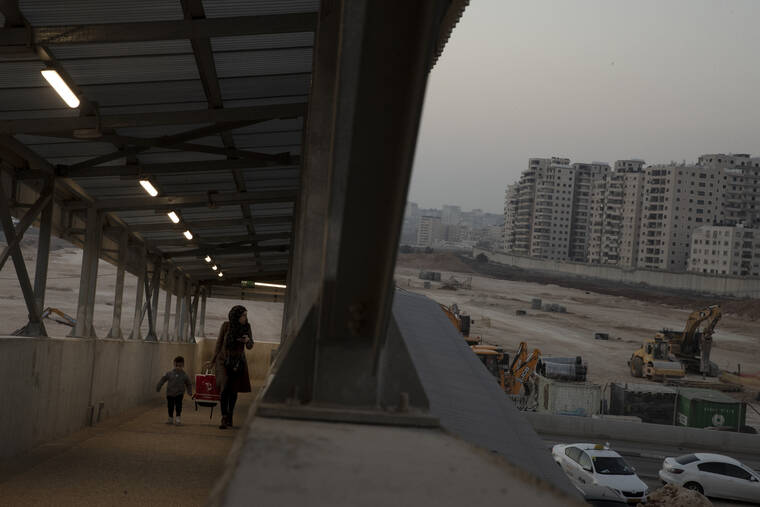JERUSALEM — Jerusalem municipal officials on Monday froze plans to build a contentious large Jewish settlement at an abandoned airport in east Jerusalem.
The decision to halt the Atarot settlement plan came in the wake of heavy U.S. opposition to the project.
Plans for the settlement called for building 9,000 housing units marketed to ultra-Orthodox Jews in an open area next to three densely populated Palestinian communities, one of which is behind Israel’s controversial separation barrier.
The municipality’s planning commission said that it had been favorably impressed with the plan but that an environmental impact survey should first be conducted before it could be approved.
Fleur Hassan-Nahoum, a deputy mayor, said the process is expected to take about a year.
The anti-settlement group Peace Now had waged a public campaign against the plan, citing the proposed settlement’s problematic location.
“Let’s hope they will use the time to understand how illogical this plan is for the development of Jerusalem and how much it damages the chances for peace,” said Hagit Ofran, a Peace Now researcher who attended the meeting.
Earlier on Monday, Israel’s foreign minister, Yair Lapid, indicated the Israeli government was in no hurry to approve the plan.
Speaking to reporters, Lapid said the plan ultimately requires approval by the national government, with “full consensus” of the various parties in the coalition.
“This will be dealt with at the national level and we know how to deal with it. It is a process and will make sure it doesn’t turn into a conflict with the (U.S.) administration,” he said.
Israel captured east Jerusalem in the 1967 Mideast war and annexed it in a move not recognized internationally. The Palestinians want east Jerusalem to be the capital of a future state including the West Bank and the Gaza Strip, which Israel also seized in that war.
Israel views all of Jerusalem as its unified capital and says it needs to build housing to address the needs of a growing population.
The Palestinians view the continual expansion of Israeli settlements as a violation of international law and an obstacle to peace, a position with wide international support. The Atarot project is considered especially damaging because it lies in the heart of a Palestinian population center.
The Biden administration has repeatedly criticized settlement construction, saying it hinders the eventual resumption of the peace process, but Israel has continued to advance settlement plans.
More than 200,000 Israeli settlers live in east Jerusalem and nearly 500,000 live in settlements scattered across the occupied West Bank. Israel’s current prime minister, Naftali Bennett, is a strong supporter of settlements and is opposed to Palestinian statehood.
There have been no substantive peace talks in more than a decade.


